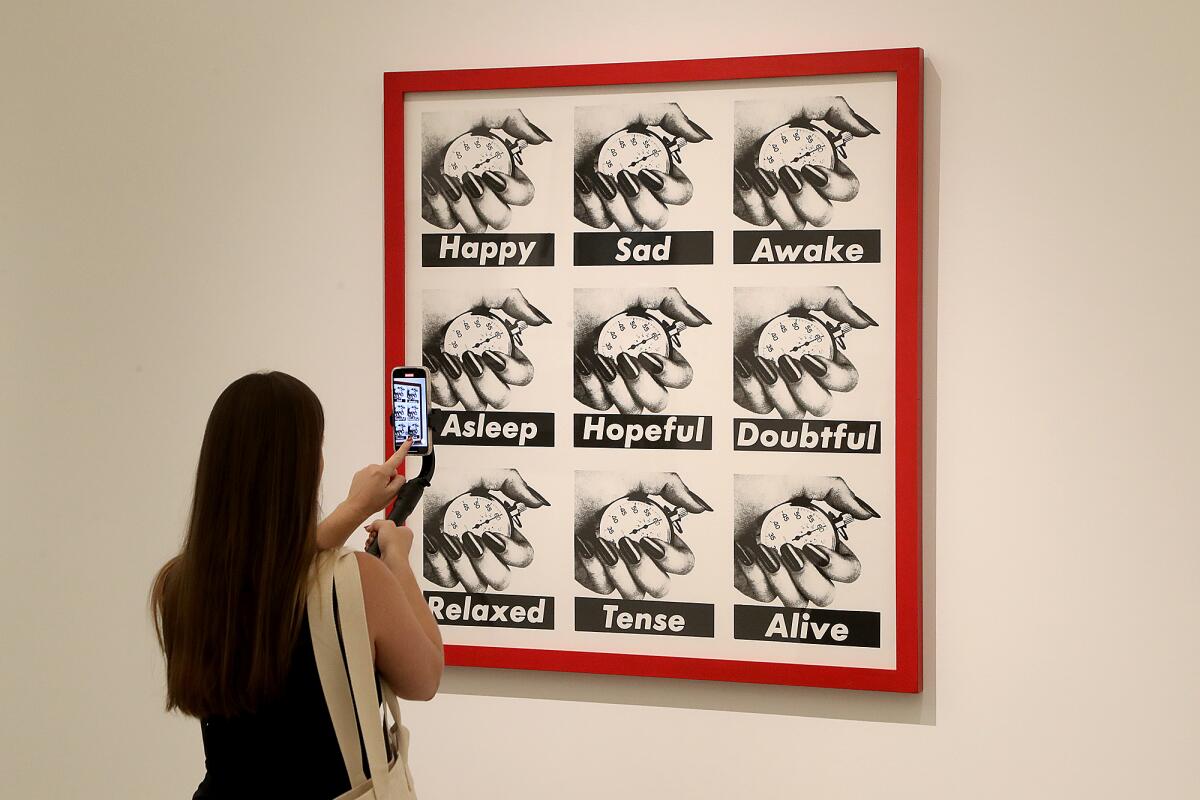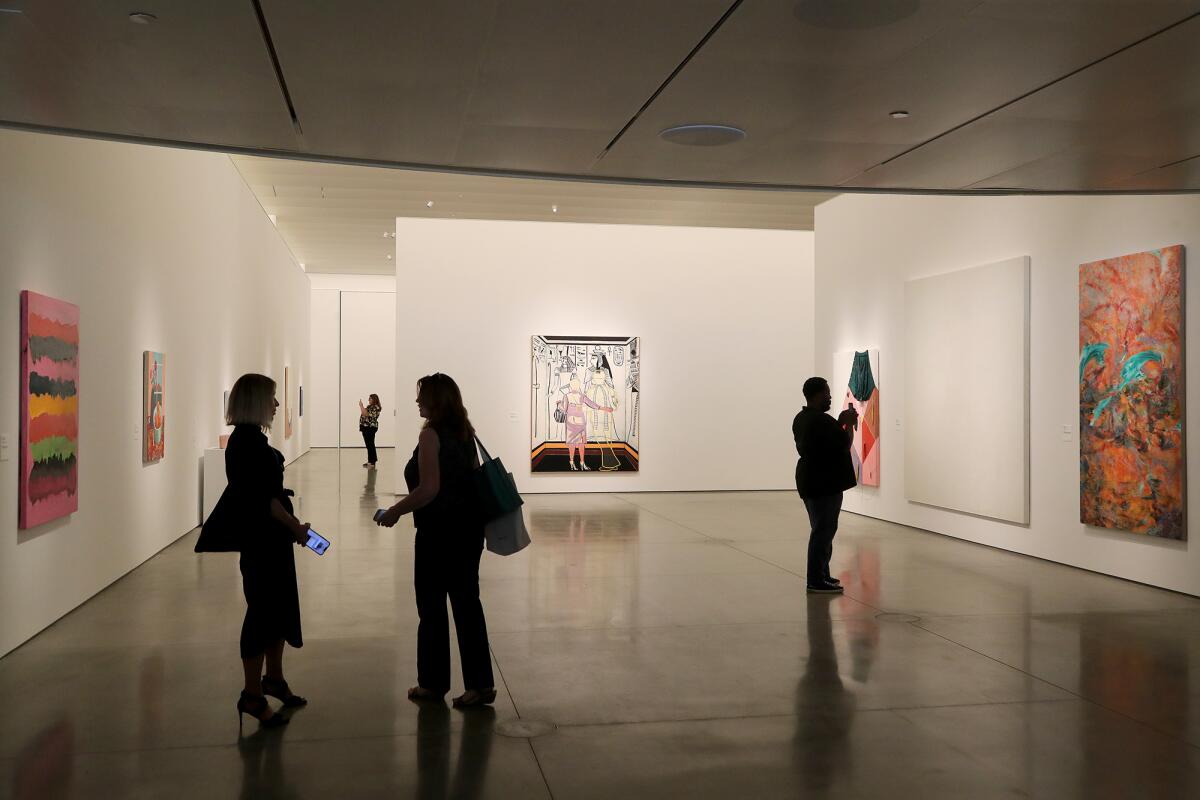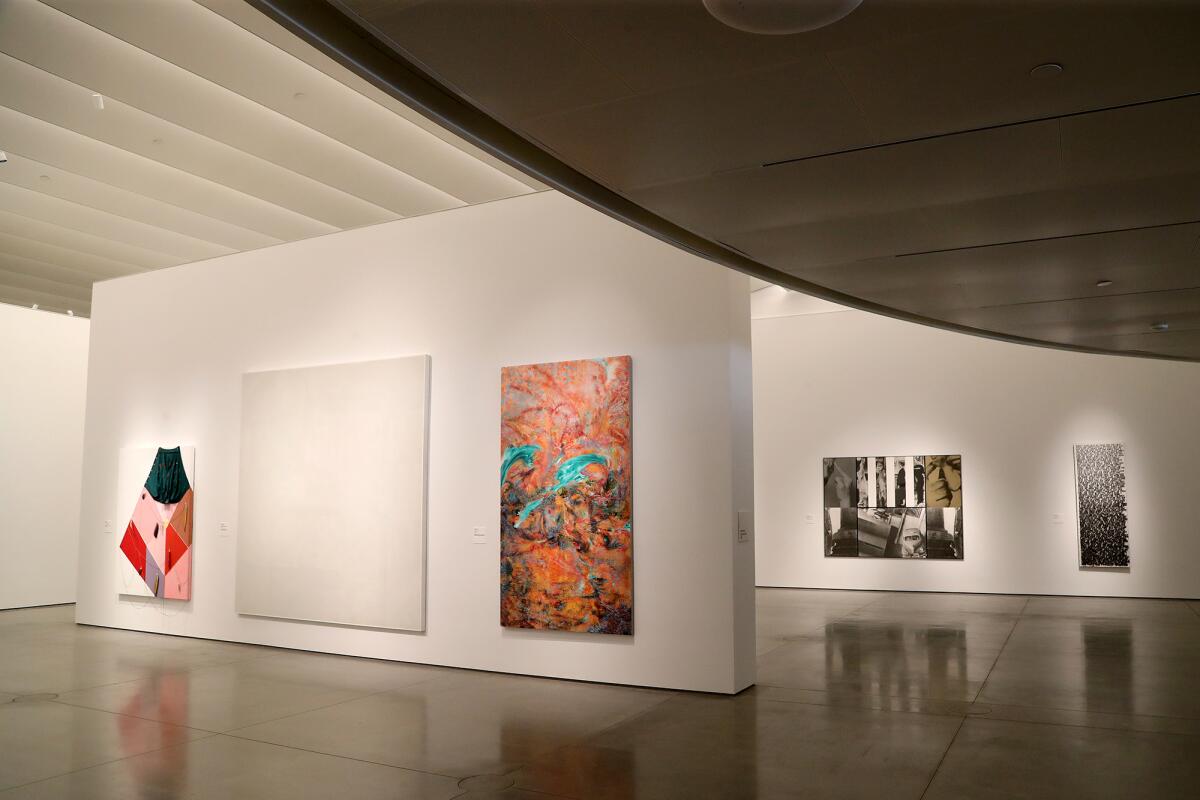A new exhibit pays homage to the 13 women who founded OCMA

When Heidi Zuckerman interviewed for her position at the Orange County Museum of Art, she knew exactly how she wanted to honor the museum’s founders.
“They asked if I was going curate an exhibition from the collection, what would it be?” said the museum’s chief executive officer and director, “and I said, ‘13 women.’ I would curate an exhibition that honors the 13 visionary founders of this institution.”
OCMA has made its new home at the Segerstrom Center for the Arts campus in Costa Mesa and opens to the public on Oct. 8, but its beginnings were more humble.
“Sixty years ago this month, 13 visionary and determined women in Newport Beach took it upon themselves to turn the second floor of the Balboa Pavilion into an art gallery for the public,” said incoming OCMA board president Lucy Sun. “So began one of the earliest contemporary art museums in California.”
The women who opened the Balboa Pavilion Gallery in Newport Harbor in 1962 were Dottie Ahmanson, Joan Brandt, Thelma Chastain, Em Cray, Dorothe Curtis, Kay Farwell, Ailene Hays, Judy Hurndall, Gloria Irvine, Jane Lawson, Betty Mickle, Flo Stoddard and Betty Winckler.
Since then, Sun continued, the museum’s name has changed and the location has moved more than once.
“But the spirit that motivated these 13 women—the drive to connect people with art and artists — remains at our heart today,” said Sun.
Among the new building’s inaugural exhibitions is Zuckerman’s curated “13 Women,” featuring artists she said have much in common with the OCMA’s founding females.

“The 13 women who founded OCMA, just like them, the 13 women who are currently on view are undaunted by the times that they have lived in,” said Zuckerman.
The earliest work in the show is by artist Agnes Pelton from 1920, while the most recent works were made for the acquisition and are far more freshly minted.
“We created this acquisition strategy, 60 works to commemorate the 60th anniversary,” said Zuckerman, “and some of the paintings, including the one by Lily Stockman, were definitely wet when it got here last week.”
Interestingly, some of the works featured are by male artists.
“I am calling it ’13 Women and a few guys,’ because of course we have so many men who have contributed to our past, our present and of course our future,” said Zuckerman.
Among them are Charles Ray’s works “Ink Box” (1986) and “Self Portrait” (1990), which OCMA acquired when it presented Ray’s first solo museum exhibition.

One work in particular is called out in the show’s introduction, perhaps because it embodies the spirit of the exhibition so well.
Barbara Kruger’s untitled work from 1989 depicts a feminine hand with long manicured fingernails, clawed around a stopwatch. The image appears, pop-art style in nine grids, each with a word: happy, sad, awake, asleep, hopeful, doubtful, relaxed, tense and alive. The American conceptual artist was known for her collage style and images that challenge consumerism through a feminist lens.
At OCMA, Zuckerman suggested the piece references the different feelings we can have from one moment to the next. Kruger herself said, “I believe that moments congeal into hours and days and construct a life, and I was just trying to reflect on those moments, those thoughts, those feelings, those fears, those pleasures.”
The pieces in “13 Women” each offer their own separate moments, but organizers hope together they can create a more powerful reflection of our space and time and how we position ourselves within its narrative.
All the latest on Orange County from Orange County.
Get our free TimesOC newsletter.
You may occasionally receive promotional content from the Daily Pilot.




